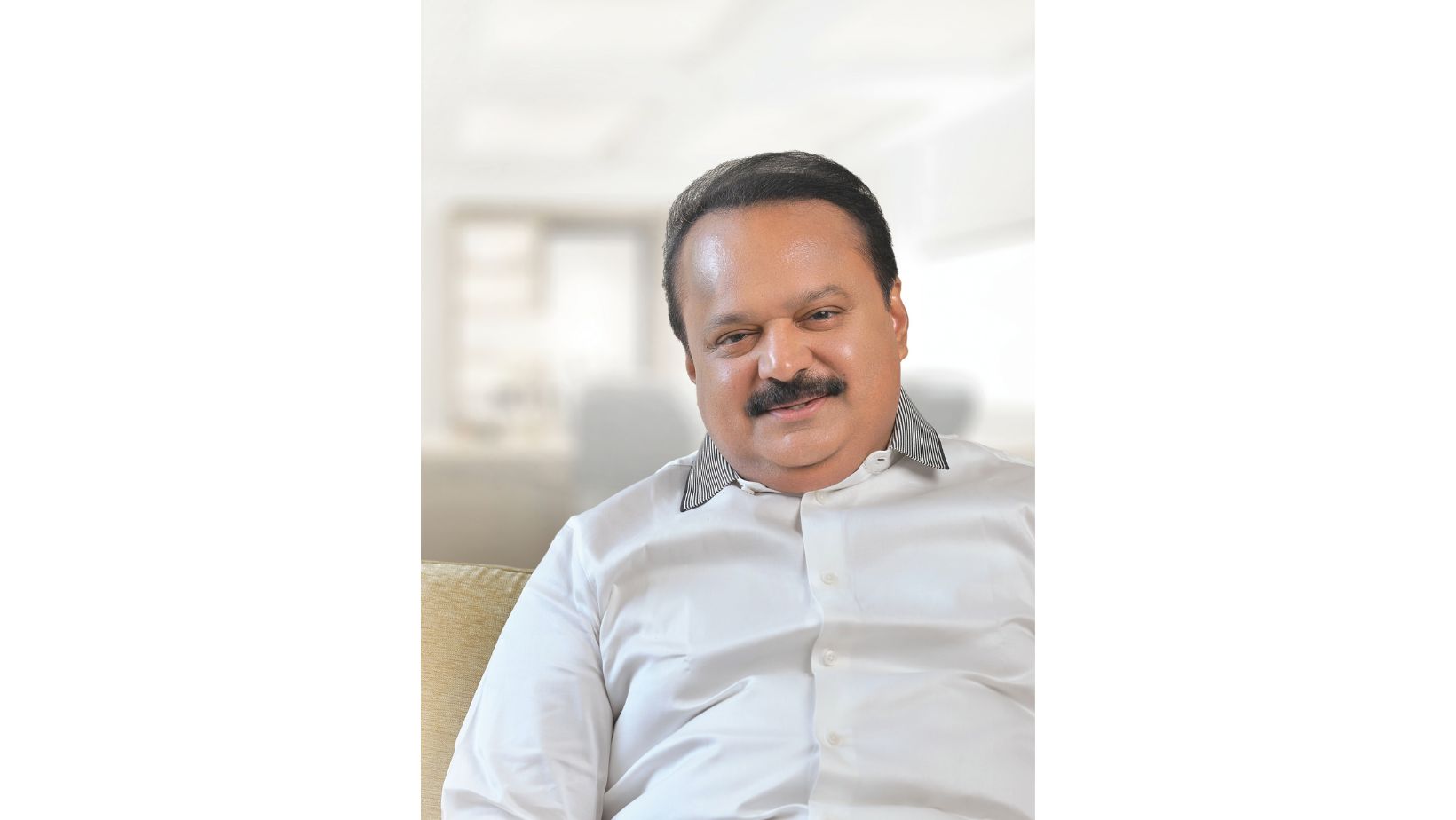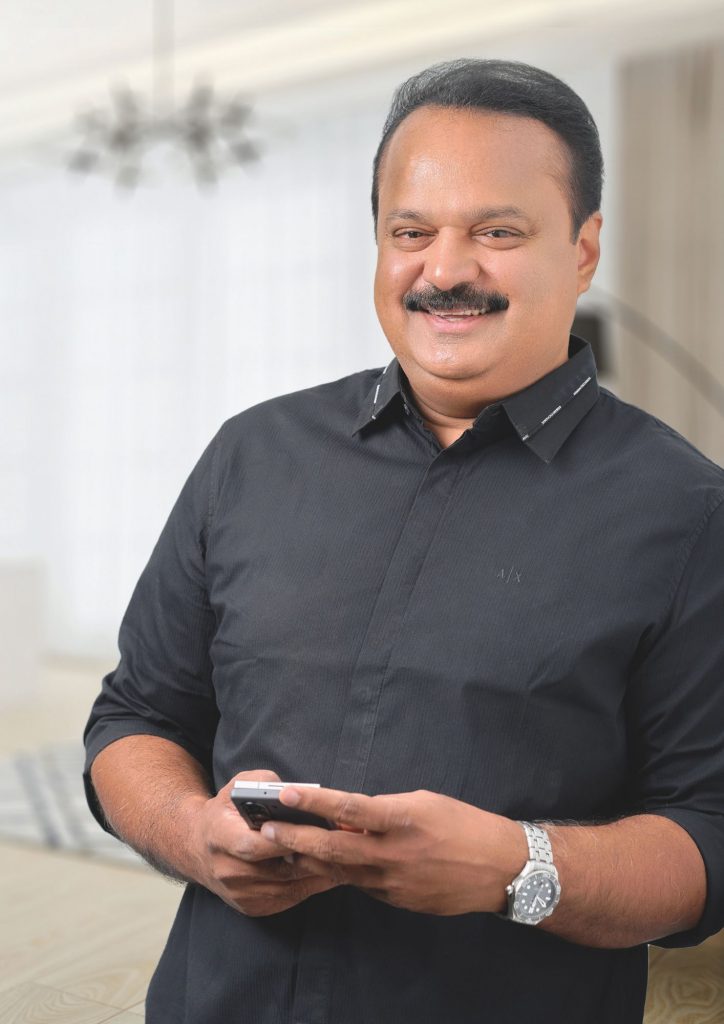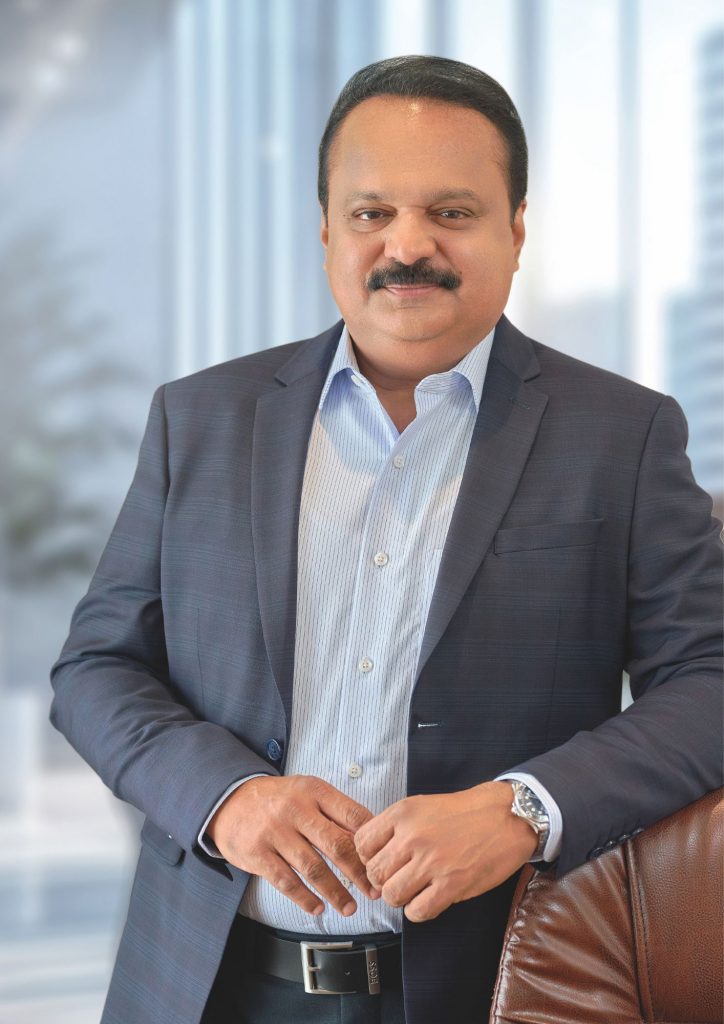
Oxygen: The Digital Expert has been a key player in Kerala’s digital transformation, introducing top-tier digital brands to consumers while ensuring their post-purchase needs and expectations are fully met. Over the last 25 years, the company has built a loyal customer base of over 7 million. In a conversation with CEO Shijo K. Thomas, he opens up about the brand’s growth and the exciting path ahead.
Could you share how your journey into business began?
After completing my diploma in computer engineering, I took up a job at a private firm in Ernakulam and worked there for two years. But life had other plans. In 1999, I had to leave that job and return to my hometown, Kanjirappally, in Kottayam district, due to my mother’s medical needs. It was a difficult time, and I found myself searching for a new direction.
That’s when I decided to channel my technical background and professional experience into something of my own. With just a 50-square-foot space and a vision, I launched Ozone Systems — a modest setup focused on assembling and selling computers. It was just one staff member and me, navigating a tech landscape that was still in its infancy.
Back then, personal computers were a rarity, mostly confined to large institutions. We sourced spare parts, assembled systems ourselves, and customized them for each customer. The process wasn’t easy — assembling a computer could take days. Installing an operating system like Windows 3.1 meant feeding in 31 floppy disks one after the other. If even one disk had fungus, the entire installation would fail. Every machine we built was a testament to patience and perseverance.
Fast forward to today, where computers arrive fully loaded and ready to go — a far cry from those early days. What began as a small venture during a tough phase in life gradually grew, expanding from Kanjirappally to Kottayam, laying the foundation for everything that followed.
What inspired the name ‘Oxygen’?
We wanted a name that stood out—something fresh, memorable, and not directly tied to technology. The idea was to create a strong brand identity that could be built through smart marketing rather than relying on a conventional tech-related name. Since our very first venture was called Ozone Systems, the evolution to Oxygen felt like a natural progression. There was also a symbolic element to it—the transformation from ozone (O₃) to oxygen (O₂) mirrors our own journey of growth and reinvention.
More importantly, in today’s hyper-connected world, digital products and services are as vital to everyday life as oxygen itself. That connection gave the name even deeper meaning—it wasn’t just a brand, but a reflection of how essential technology has become.
“Trust is our hot ticket to success” – How has this philosophy helped shape the growth of the Oxygen Group?
From the very beginning, trust has been our top priority. We place great emphasis on after-sales service. The relationship with a customer starts when they purchase a product, especially electronic goods, and it continues beyond the sale. When computers were not as common in the early days, customers had many doubts about their functionality. It was also the time when the internet was just starting to gain traction. We used to receive constant service calls, even at night, and we always attended them.
To gain customer trust, selling only high-quality products is crucial. In our early days, the grey market was very active in this sector. However, from the beginning until now, we have only provided company-authorised spare parts, ensuring customers receive the warranty they deserve. We have never compromised on the quality.
By holding firmly to our principle that “Trust is our hot ticket to success”, we have retained customers who have been with us since 1999. Ever since we rebranded from Ozone to Oxygen, every showroom has had an Oxygen Care service center. These units are our own, set up purely to support customers without focusing on profit.
By maintaining product quality and providing excellent after-sales service, we have continued our journey alongside our customers. This is why, even in our 25th year, we continue to thrive successfully. Hence, “Trust is our hot ticket to success.”
Can you explain the phenomenal growth from a 50-square-foot shop to 44 showrooms across Kerala?
As I mentioned earlier, that era marked the beginning of digitalisation. It was a time when computers started becoming a necessity. Recognising this demand and establishing a firm presence in the market was the key to our growth.
At one point, I met with a major accident and was bedridden for six months. During that period, I realised an important truth—no individual can build and sustain a large enterprise alone. However, if there is a trustworthy and energetic team alongside, success can be achieved. Understanding this, I gradually built a strong team. Instead of focusing solely on highly educated individuals, I prioritised hiring those who were deeply committed and willing to lead our venture selflessly.
Another crucial factor was effectively marketing our products and services. From the beginning, we have paid significant attention to continuously informing both customers and potential customers about our offerings. As we scaled up, we computerised and implemented automation. Today, all aspects of our business operate through systematic automation, which has greatly contributed to our growth. Our ability to recognise and adapt to changing times has been a major factor in our business expansion.
Can you elaborate on ‘Adapting to Change’?
Adapting to change is one of the most critical aspects of running a successful and sustainable business. If a business fails to embrace evolving trends, its very survival can be at risk. For instance, take Nokia, which was once a leader in mobile phones. Its reluctance to adopt the Android operating system led to its decline. Similarly, Kodak was once the number-one company in the camera industry, but when digital cameras emerged, the company collapsed because it failed to adapt.
In our case, we started by assembling personal computers. When laptops became popular, we shifted our focus accordingly. We were the first in Kerala to introduce stores where customers could experience computers and laptops firsthand with a “touch-and-feel” experience. That store became a benchmark, and many others followed the same model.
Similarly, when the smartphone revolution arrived in 2010, we incorporated smartphones into our product category. This brought a massive transformation to our business. Today, nearly 45% of our revenue comes from smartphone sales. If we had not included smartphones in our product line-up back then, our growth would not have been as significant.
We also adapted to changes in the home appliances industry, embracing digitalisation and AI-driven products. Our goal has been to bring all kinds of electronic products under one roof. Now, we are eagerly preparing for the changes the future will bring.
How do you strike the right balance between innovation and core values?
As a business grows—from ₹10 crore to ₹100 crore and beyond—the foundation must shift from individual-driven efforts to robust systems and technology-enabled processes. It’s not just about the people anymore; it’s about building a strong, tech-powered backbone that can scale seamlessly.
Equally important is cultivating a leadership mindset focused on continuous growth. The moment complacency creeps in with thoughts like “this is enough,” the momentum slows. By establishing a strong growth engine, leveraging data-driven insights, and staying agile with course corrections, we ensure that innovation thrives while staying rooted in our core values.
What led you to launch your own TV brand, ‘Oxyview’?
Our close connection with customers across our retail network revealed a clear opportunity—a growing need for a feature-rich, high-quality smart TV at an affordable price point. We saw this as more than just a business opportunity; it was a chance to democratize technology. That’s how Oxyview was born.
Since it’s our in-house brand, we’re able to offer better after-sales support, direct service, and warranty—all of which deepen customer trust. The reception has been incredibly encouraging, with demand often surpassing supply.
The success of Oxyview TVs laid the groundwork for broader ambitions. This year, we’re set to introduce Oxyview air conditioners, followed by a range of small appliances. We’re proud to say these products are being manufactured at scale within India, supported strongly by the government’s “Make in India” initiative.
Are there plans to expand Oxygen at the national or international level?
Yes, national expansion efforts are already in progress, and they will be realised soon. However, there are currently no immediate plans for international expansion.
What are the essential qualities of an entrepreneur?
In any business, the most important aspect is to execute innovative ideas creatively. This ability is the first and foremost requirement for an entrepreneur. They must be strong enough to face challenges and crises, take the initiative in every situation, and have the adaptability to adjust to changing circumstances. They should also be capable of creating the necessary resources for the business.
Above all, an entrepreneur must be patient. Success does not come overnight—it requires consistent efforts and perseverance. Many young entrepreneurs and start-ups enter this field thinking, “I can’t work under someone else, so I’ll start my own business.” However, their rise and fall often happen as quickly as fireflies flashing in the dark. Some keep shifting from one venture to another because they lack the patience to endure losses.
In my case, for the first five years, I had no profits—I faced multiple financial setbacks. However, patience and persistence helped me reach where I am today.
Every business typically goes through five stages, known as the “5 S’s”:
1. Struggle – The initial phase involves battling various challenges.
2. Survival – This is when a business begins to manage its expenses.
3. Stability – At this stage, profits start coming in.
4. Success – This phase involves establishing a strong second-line leadership team that manages systems and processes.
5. Scale-up – The final stage, where the business grows beyond the entrepreneur’s direct involvement.
What are the major challenges of managing a large retail chain today?
The retail landscape has changed dramatically with the rise of e-commerce, bringing with it intense and often unhealthy competition. The focus has shifted away from customer value to a price-war mindset. Earlier, elements like after-sales service, trust, and long-term satisfaction played a crucial role in purchase decisions. Now, many consumers are driven primarily by the lowest price tag, often overlooking the benefits of quality service and product longevity.
This race to the bottom is not sustainable—businesses that survive solely on price cuts risk losing customer trust and loyalty in the long run. At Oxygen, we believe that healthy competition means offering fair prices while also delivering exceptional service and customer care. That’s the balance we strive to maintain.
If Oxygen were to diversify beyond retail, what sector would you explore?
If we were to step outside the retail space, digital product manufacturing would be our natural next step. The digital world is evolving at breakneck speed, and technologies like Artificial Intelligence and Robotics are no longer futuristic—they’re already woven into our daily lives, from smartphones to home appliances.
We envision creating innovative, AI-powered, and robotics-integrated digital products that respond to the ever-changing needs of modern consumers. It’s not just about keeping pace—it’s about staying ahead of the curve.
If you had to describe Oxygen’s success in just three words, what would they be?
Our growth story is anchored in three powerful ideals:
- Democracy – Decisions are made collaboratively, with open dialogue and collective input from the entire team.
- Socialism – We practice equality at every level. From the CEO to the housekeeping staff, everyone is respected and valued.
- Secularism – We believe in fairness, inclusivity, and transparency—not just within the organization, but also in how we serve our customers.
From assembling our first computers in a modest space to becoming a digitally empowered brand, our commitment has always been to transparency, quality, and social responsibility. We deeply believe that wealth earned from society must be channeled back into it—through support, progress, and meaningful contributions.
Pic Courtesy: Pegasus Photography











